Ďalšie zlyhanie Romana Mikulca
Na ministerstve vnútra tuho spali. Včera zazvonil budíček. Česko obnovuje pre stúpajúcu nelegálnu migráciu kontroly na 27 bývalých hraničných priechodoch. Polícia spolu s vojakmi bude kontrolovať aj zelenú hranicu.
Na ministerstve vnútra tuho spali. Včera zazvonil budíček. Česko obnovuje pre stúpajúcu nelegálnu migráciu kontroly na 27 bývalých hraničných priechodoch. Polícia spolu s vojakmi bude kontrolovať aj zelenú hranicu.
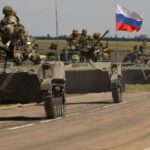
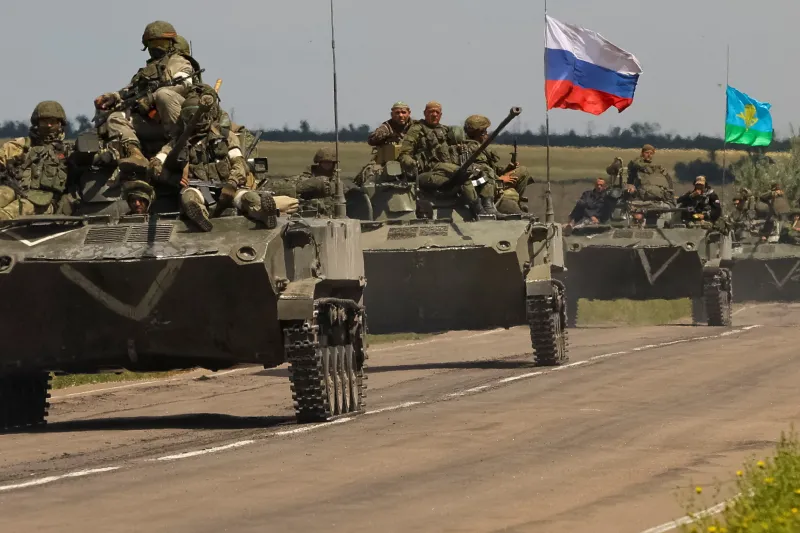
Sacrificing His Core Supporters in a Race Against Defeat
At least since Soviet times, Russians have used dark humor to cope with dictatorship. Perhaps it is not surprising, then, that Russian President Vladimir Putin’s partial mobilization has already been colloquially dubbed the mogilizatsia, a wordplay on mobilizatsia, the Russian word for “mobilization,” and mogila, the word for “grave.” What is more, in practice, this move-to-the-graveyard is proving to be far from partial. Despite assurances by Putin and his defense minister that the draft would be limited to 300,000 people, primarily military reservists who had already served in the army and in conflict zones, Russians have already witnessed the forced conscription of men of all ages across the country. The mobilization has turned out to be almost general.
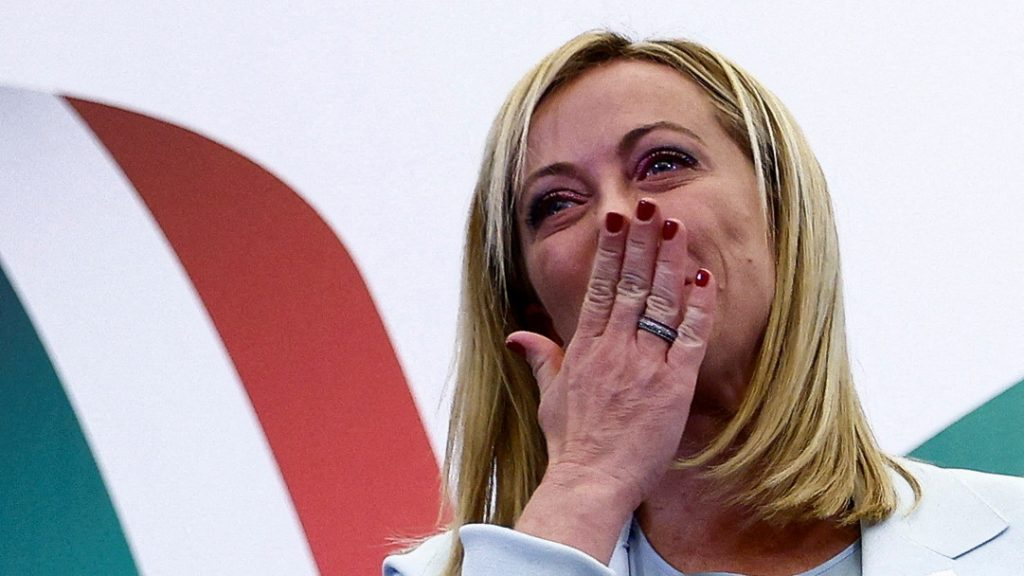
Long a controversial figure both at home and abroad over her party’s direct lineage from Italy’s neo-fascist movement, Giorgia Meloni is now expected to become the country’s newest prime minister after her party secured the most votes in Sunday’s election. Her controversial views on migration, erstwhile fascination with Russian President Vladimir Putin’s Russia, anti-LGBTQ stance, and open criticism toward the European Union (EU) have all contributed to her image as an unsavory right-wing politician.
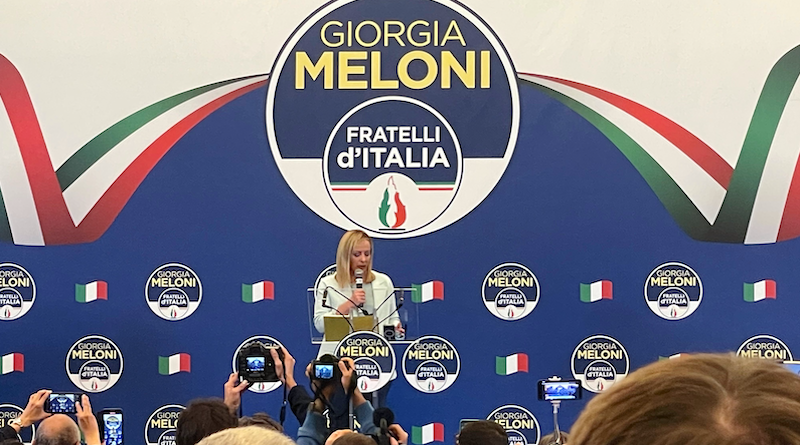
The Sunday general elections that saw a right-wing alliance led by far-right candidate Giorgia Meloni win a resounding majority in both upper and lower houses of the Italian legislative will likely see her national conservative European political family becoming the third-largest bloc in European Council by population.
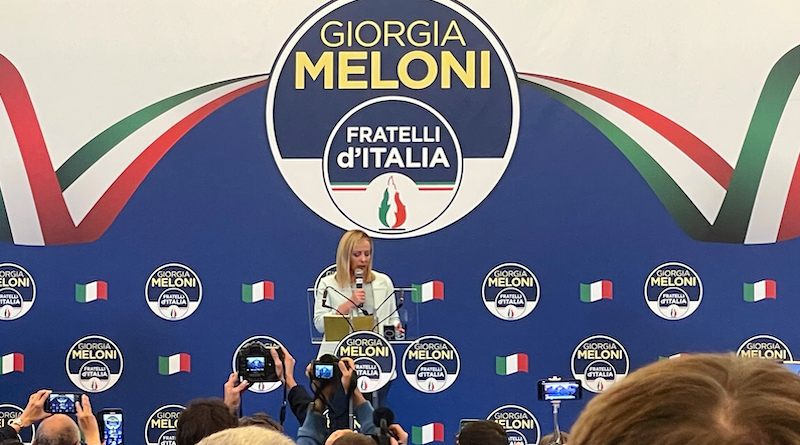
Italy’s national elections on Sept. 25 ended with Giorgia Meloni, a Catholic mother, poised to become the country’s first female prime minister.
In the snap elections — called after former prime minister Mario Draghi’s unity government collapsed due to economic and military tensions — Meloni’s Brothers of Italy party captured the most votes at around 26%, skyrocketing from a roughly 4% share four years ago.
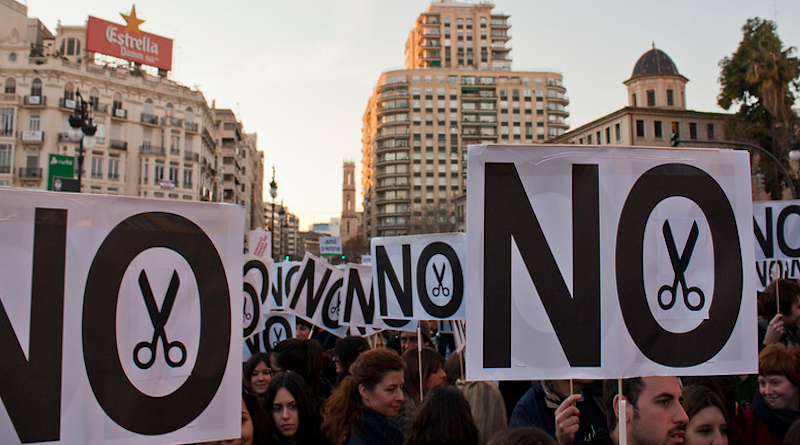
Inflationary pressure, rising levels of public debt and the fading post-pandemic recovery may suggest the premature adoption of policies for fiscal consolidation. However, the international economic outlook and the geopolitical situation created by the war in Ukraine rule out a return to the model of growth that emerged from the financial crisis in 2008-10.
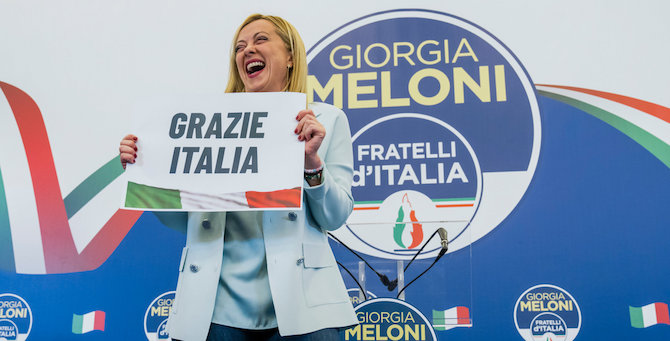
Zmaga desne koalicije na italijanskih parlamentarnih volitvah, prejela je okoli 44 odstotkov glasov, ne prinaša sprememb le v Italiji, saj najbolj desne vlade po drugi svetovni vojni ne bo čutiti le doma, ampak verjetno tudi širše, v Evropski uniji in zvezi Nato. Največ zaslug za to ima vsekakor karizmatična Giorgina Meloni. Izkoristila je težnjo precejšnjega dela italijanskih volivcev po spremembah in novem obrazu. Slovencem se to zdi zelo znano, mar ne?
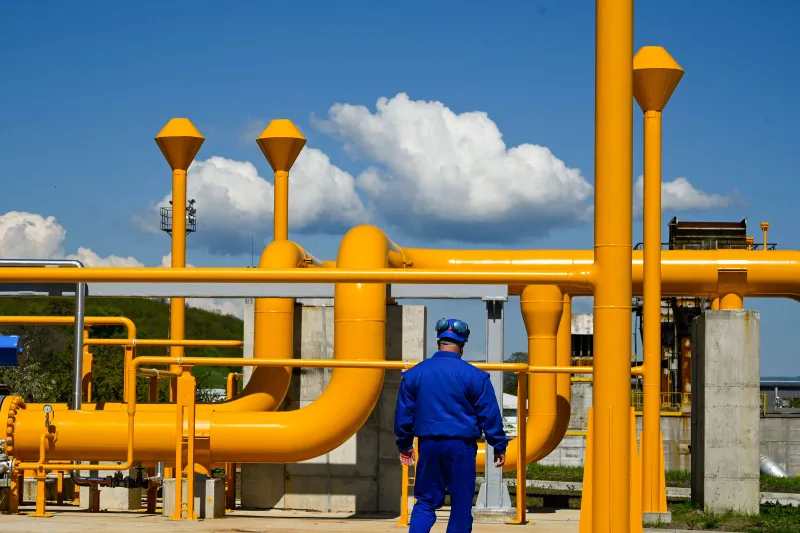
How Governments Will Transform Energy Markets
In the wake of Russia’s invasion of Ukraine, the world appears to be at an inflection point. Business leaders have declared the acceleration of deglobalization and sounded the alarm about a new period of stagflation.
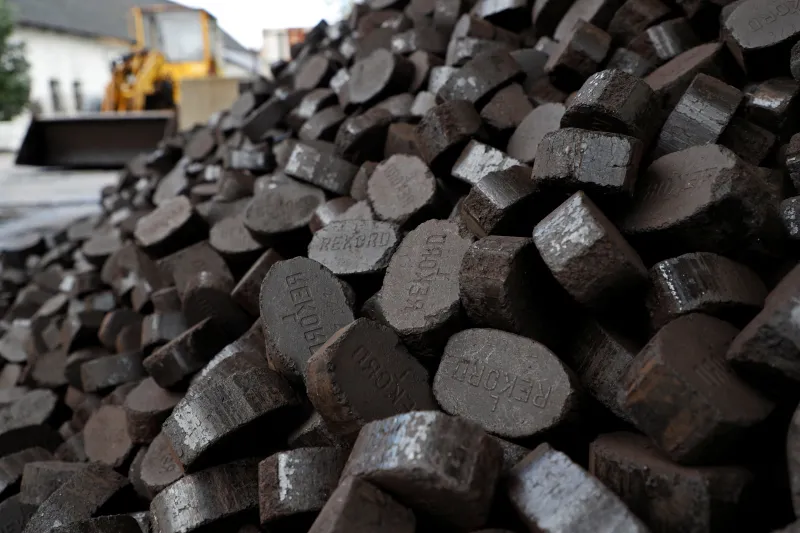
How the Quest for Resources Has Shaped the Continent
Russian President Vladimir Putin’s war against Ukraine has laid bare some uncomfortable truths about Europe’s energy future. For one thing, it has demolished the presumption in Germany that Russia would be a reliable fossil fuel partner. The war has also blown apart Europe’s claim to moral leadership on climate change. At the UN Climate Change Conference in Glasgow in the fall of 2021, the European Union unsuccessfully demanded that China and India commit to a timetable for phasing out coal. Now that demand appears almost hypocritical, because countries such as Germany are keeping open coal-fired power stations that were due to close to deal with their present energy woes. In doing so, these leaders have demonstrated that coal is still the primary energy source of last resort for generating electricity.
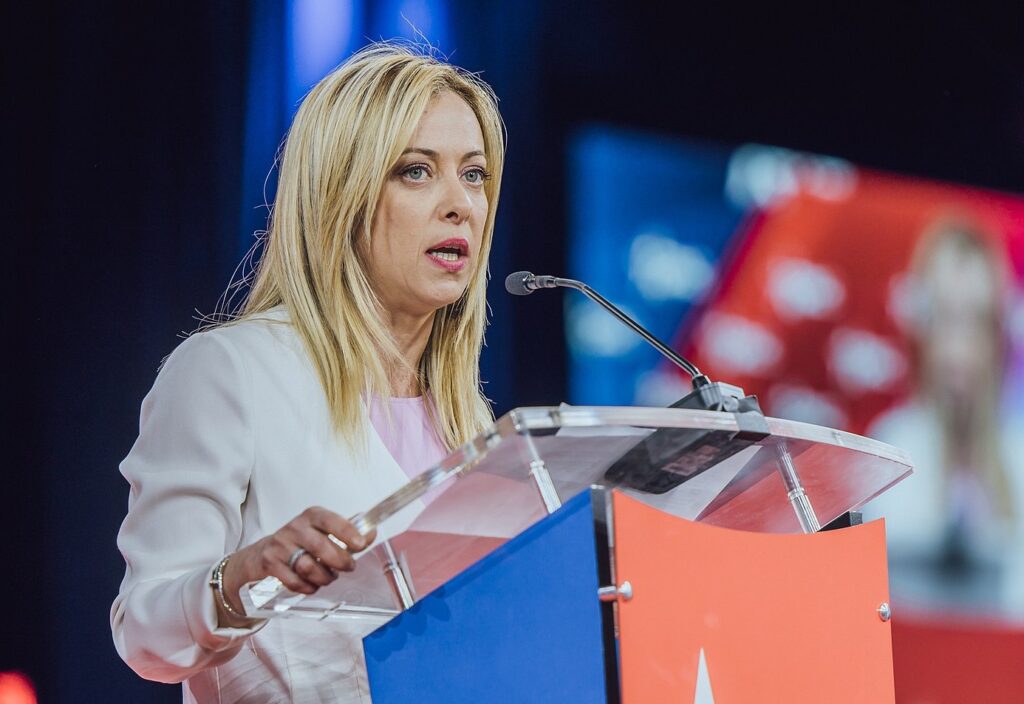
The Italian Parliamentary election has concluded and the neofascist, Giorgia Meloni, is ready to emerge as the new prime minister of a divided country with no clear mandate from around 60 percent of eligible voters, in one of the lower voter turnouts in history. The choices were quite grim and the system rigged along the lines of the anti-democratic US election model after years of CIA influence in working to create a bipolar schizophrenic and easily destabilised political system.